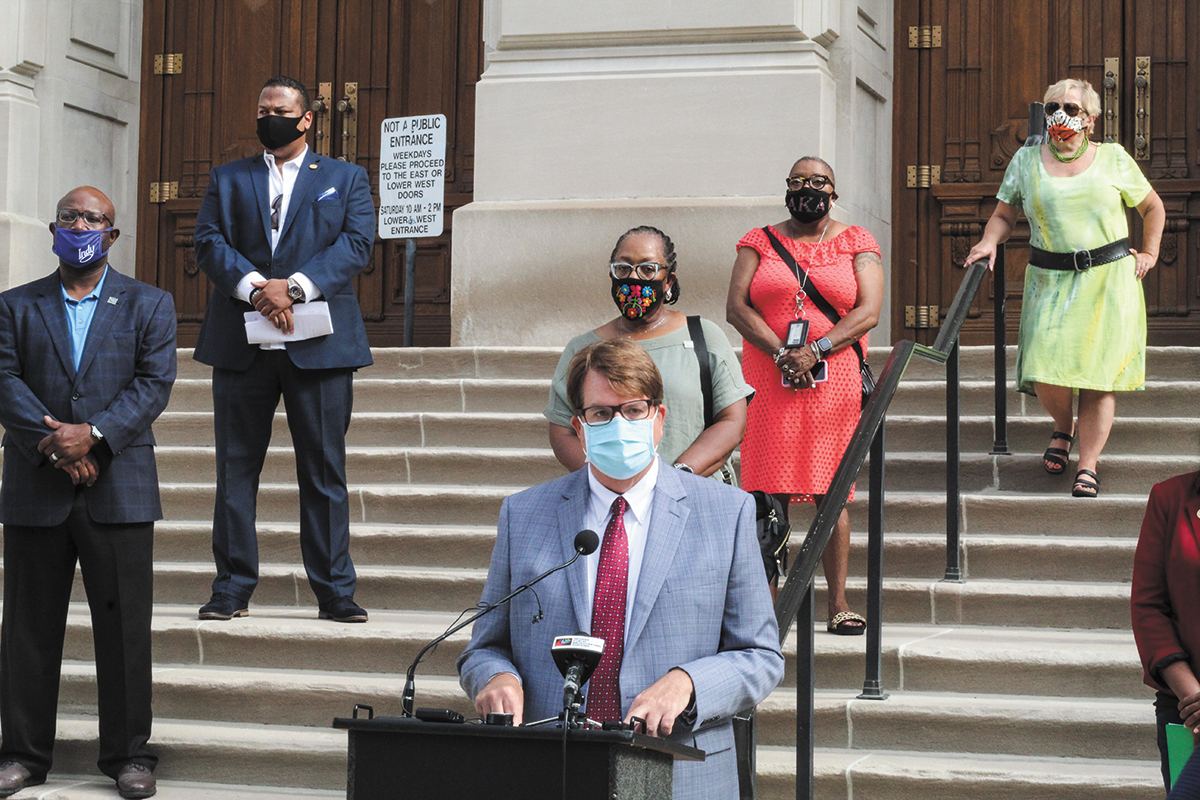Subscriber Benefit
As a subscriber you can listen to articles at work, in the car, or while you work out. Subscribe NowFollowing the growing awareness of police brutality across the country, the Indiana Black Legislative Caucus is leading the call for policing reform with the group’s chair believing if the General Assembly does not act during the 2021 session, the opportunity for meaningful change will have been lost.
“If we can’t get it done this session, there will be no other session,” said Rep. Robin Shackleford, chair of of the IBLC. “Because of that perfect storm, I think we’ll be able to get more passed this session.”
The climate for reform has been created by videos that captured police misconduct along with the severity of incidents fueled by racial profiling and use of force. Also, with the COVID-19 pandemic, more people have been spending time at home so they are able to watch and think about what they are seeing so that they are now calling for racial equality.
Shackleford, D-Indianapolis, is optimistic reform measures will be passed, especially because Republicans have been telling her their constituents are wanting the Legislature to act.
“I think everybody is onboard that there need to be changes but it’s just, now, how deep does that go?” Shackleford said. “How far is everybody willing to go to make these changes?”
Neither Gov. Eric Holcomb nor the Republicans in the Indiana House or Senate have released any policing proposals.
However, Rep. Greg Steuerwald is leading a bipartisan group from the Statehouse to look at measures to bring about changes in law enforcement. The Avon Republican has experience having worked on criminal justice reform issues for several years and leading the effort that rewrote Indiana’s Criminal Code.
“We are having productive and meaningful conversations on criminal justice issues with all the stakeholders, including the Indiana Black Legislative Caucus and law enforcement,” Steuerwald said. “I’m hopeful that by working together we will find common ground on ways to continue to improve the system moving forward.”
The judiciary will also have a role in police reform, Shackleford said. Issues of bail reform, jail overcrowding and mental health treatment for inmates are all areas where the courts can impact.
“There’s a role for all three branches,” she said.
Indictments
The IBLC is advocating for a variety of reforms, Shackleford said, including use of body and dash cameras, background checks for officers, a database of civilian complaints and fewer police officers stationed in schools. Many things on the agenda are policies the caucus has been proposing for years, such as ending racial profiling and requiring police officers to live in their districts.
Some of the policies are also born out of community meetings and constituent conversations. This has led to more grassroots advocacy with community groups, neighborhoods and churches preparing to amplify the message for police reform. Shackleford believes having more people involved will help bring about new policing policies.
As part of the effort to increase the sway the public will have, residents are being encouraged to vote. Shackleford noted elected officials pay attention to people who go to the polls, so voter registration and education campaigns are ongoing.

Even before the session begins, law enforcement agencies are implementing changes. In July, the Indianapolis Metropolitan Police Department announced it was adopting new use of force policies that emphasize de-escalation, require using the minimum amount of force necessary and restrict the use of deadly force.
“For the last several years, we have worked to improve training and policies for IMPD officers,” said Mayor Joe Hogsett. “From implicit bias and de-escalation training, to the proposed Use of Force Review Board, to these updates to IMPD use of force policies — these changes aim to ensure IMPD better serves every member of the Indianapolis community.”
Less than a month after IMPD’s announcement, the Marion County Prosecutor Ryan Mears announced the indictment of two police officers. IMPD Officers Jonathan Horlock and Nathaniel Schauwecker were indicted for hitting two protesters with their batons during the protests in downtown Indianapolis on May 31.
The officers were indicted on multiple charges including Level 5 felony battery and Level 6 felony battery resulting in moderate injury.
Video of the incident showing the two victims being hit and one pushed to the ground is contributing to the perfect storm Shackleford sees raging in the community.
“I think this year was very monumental in that a lot of racial incidents happened across the country,” Shackleford said, adding videos of the scenes just magnified what has been going on. “I think once people see that … (they) just got so angry and frustrated.”•
Please enable JavaScript to view this content.

